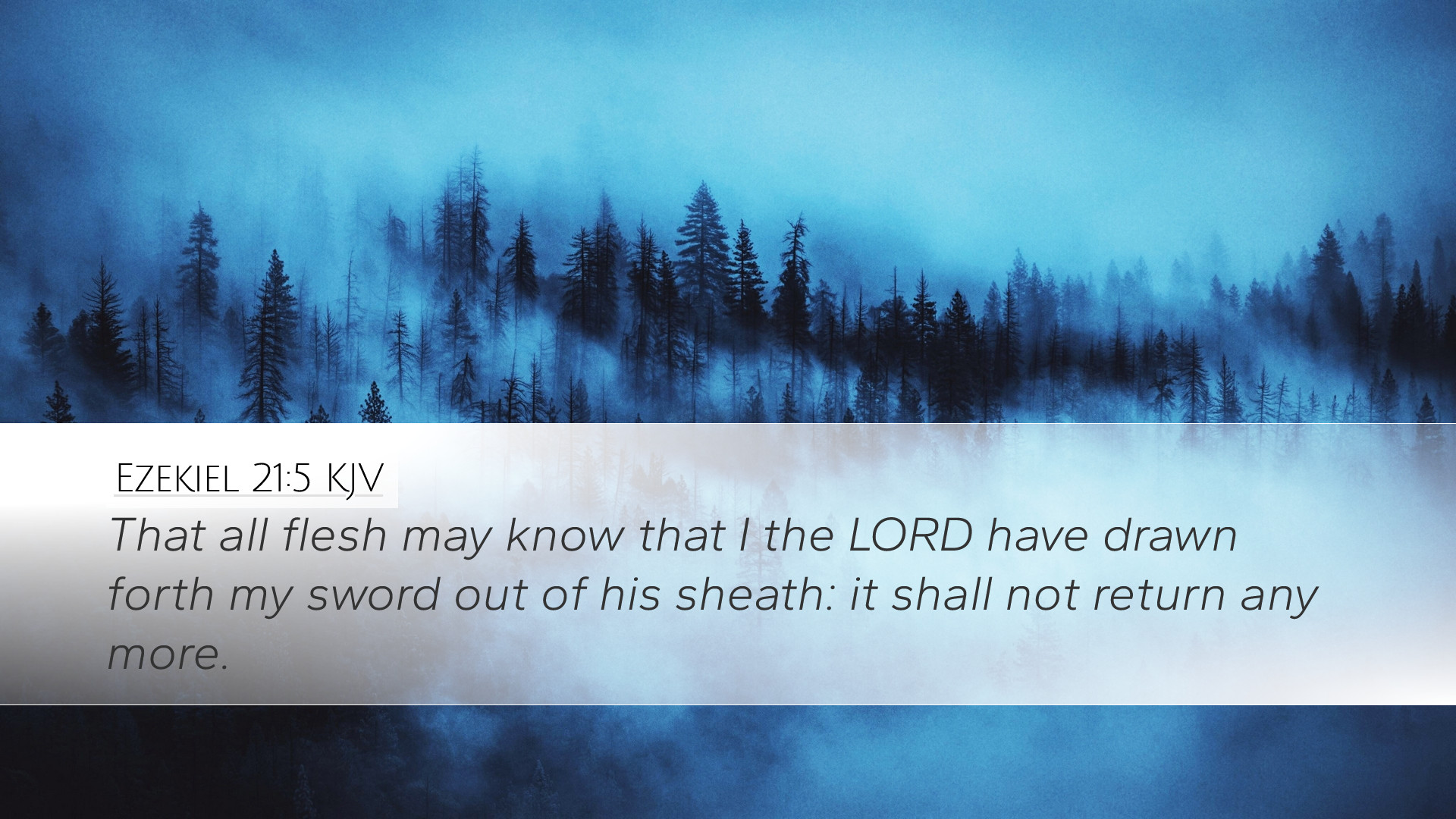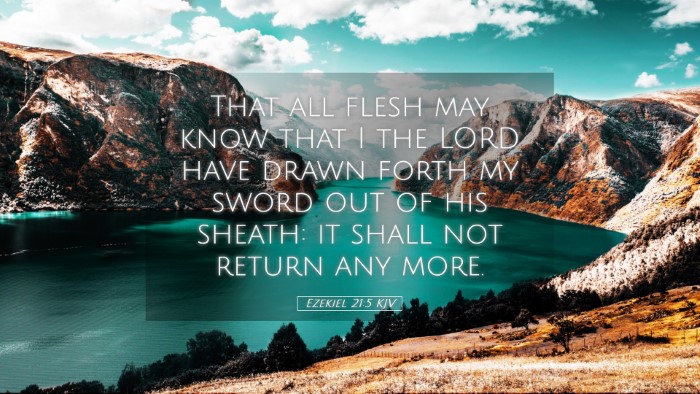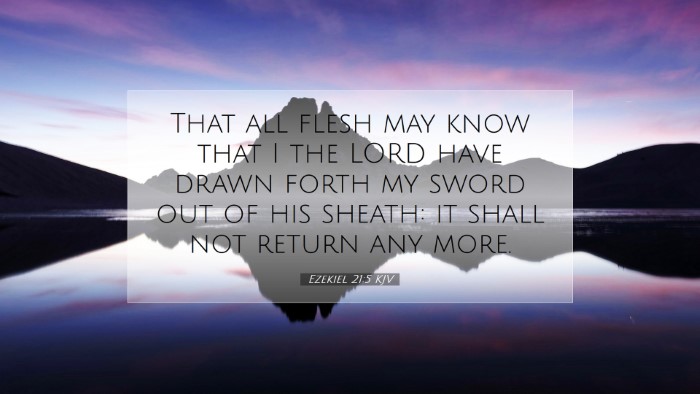Ezekiel 21:5 - Commentary and Insights
Bible Verse: "And all flesh shall know that I, the LORD, have drawn forth my sword out of his sheath: it shall not return any more."
Introduction
The verse from Ezekiel 21:5 is a proclamation of divine judgment and the irrevocable decisions of God concerning His people. The imagery of the sword being drawn from its sheath symbolizes impending judgment and the consequences of moral failure. In this commentary, we will explore the significance of this verse with insights from noted public domain commentaries, providing a comprehensive understanding for pastors, students, theologians, and Bible scholars.
Historical Context
The context of Ezekiel is crucial for understanding this proclamation. Ezekiel, a prophet during the Babylonian exile, is called to deliver messages of warning to Israel regarding their unfaithfulness and impending judgment. His messages are often filled with vivid imagery that illustrate God’s displeasure and the necessity for repentance.
Matthew Henry’s Commentary
Matthew Henry emphasizes the emphatic declaration of God's sovereignty in this verse. He notes that when the LORD draws His sword, there is a certainty of divine action that cannot be thwarted. Henry draws attention to the phrase "all flesh shall know," asserting that the judgment of God is not solely for the Israelites but serves as a testimony to all nations of God’s power and righteousness.
Henry elaborates on the profound impact of divine judgment, articulating that God’s actions serve as a clarion call to all humanity concerning His authority. He explains how the drawing of the sword represents God's irrevocable stance against iniquity and highlights that once judgment is declared, it will not be reversed. This theme encourages repentance and serves as a warning against complacency in sin.
Albert Barnes’ Commentary
Albert Barnes provides a further perspective on the implications of God's sword being drawn. He underscores the idea that this action signifies a time when God will execute justice against His people for their rebellion. According to Barnes, the phrase "it shall not return any more" is a sobering reminder of the permanence of God's judgment, hinting at the seriousness of sin and the catastrophic results of turning away from God.
Barnes also implies that this verse can serve as a warning to nations beyond Israel that the consequences of rejecting God’s ways leads to inevitable judgment. His reflection enhances the understanding of God's character as both loving and just, establishing a firm basis for why His holiness demands accountability.
Adam Clarke’s Commentary
Adam Clarke contributes to the discourse by meticulously analyzing the significance of the sword in this prophetic declaration. He interprets the sword as a symbol of conflict and divine war, which underscores the seriousness of God’s intent to confront sin among His people. Clarke also focuses on the concept of God's intervention in human affairs, stating that His actions are deliberate and aimed at restoring righteousness.
Furthermore, Clarke explores the notion of awareness among all flesh, indicating that the acts of God are not confined to the Israelites but are universal in their implications. He reflects on how God's judgment serves as a testimony that will resonate through generations, thus reinforcing the messages of accountability and divine authority.
Theological Implications
From the combined insights of these commentaries, several theological implications emerge:
- God’s Sovereignty: The verse distinctly establishes God’s ultimate control over judgment and His unwavering response to human sin.
- Universal Awareness: The phrase "all flesh shall know" highlights the idea that God's nature and His judgments are evident to all, serving as a revelation of His character.
- Permanence of Judgment: The finality of the sword not returning signifies the irreversible consequences of divine action, pressing the need for repentance and humility before God.
- Call to Repentance: This proclamation acts as a clarion call for nations and individuals alike to turn back to God, acknowledging that His mercy precedes His judgment.
Conclusion
Ezekiel 21:5 serves as a powerful reminder of God's holiness and justice. The combined insights from Matthew Henry, Albert Barnes, and Adam Clarke emphasize the significance of heeding God's warnings. The imagery of the sword drawn speaks to the urgency of divine judgment, underscoring the need for self-examination and a return to righteous living. It is a call that transcends time, urging all who hear it to recognize the seriousness of sin and the love of a God who desires relationship over judgment.


